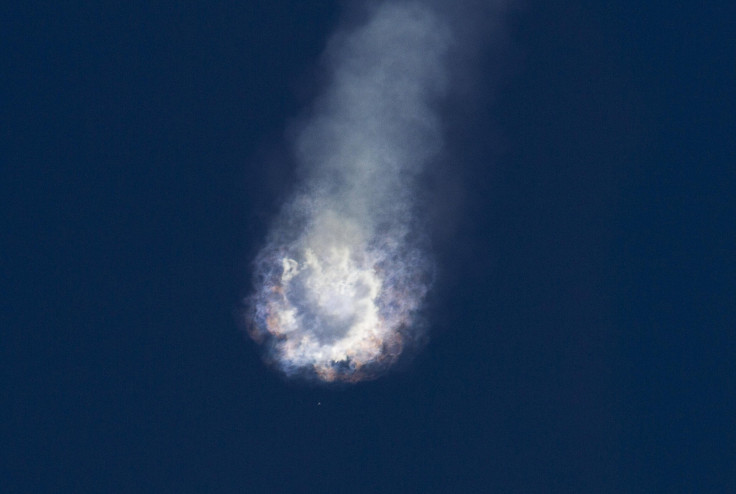Next SpaceX Launch Will Be 'Later This Year,' Elon Musk Says, As Rocket Company Looks For Answers

It's been more than a week since SpaceX's Falcon 9 rocket exploded minutes after liftoff, but Elon Musk still isn't over the calamity. Musk, who founded the space company with the ultimate goal of colonizing Mars, already had postponed all SpaceX launches and now says “the accident was a huge blow to SpaceX.”
“The data does seem to be quite difficult to interpret,” Musk said onstage during an appearance at the International Space Station R&D conference in Boston. “Whatever happened was not straightforward.”
Musk was referring to the disastrous June 28 launch in which a Falcon 9 rocket meant to carry supplies to the International Space Station exploded less than 3 minutes after taking off from Cape Canaveral, Florida. Observers were paying close attention to the launch because of Musk's intention to land the first stage of the rocket onto an autonomous floating barge in the Atlantic Ocean and ultimately reuse it. Musk was still surprised, if his comments this week are any indication.
“The last launch we had the best chance of landing the vehicle on the drone ship in the Atlantic,” he said. “I know there's media in the audience. I don't want to say something that subsequently turns out to be a misunderstanding of the situation.”
The next scheduled Falcon 9 launch, set for Aug. 9, was immediately postponed following the explosion over Cape Canaveral. Musk did not offer any new details on an updated launch forecast, saying only the next launch will happen “later this year.”
© Copyright IBTimes 2025. All rights reserved.





















